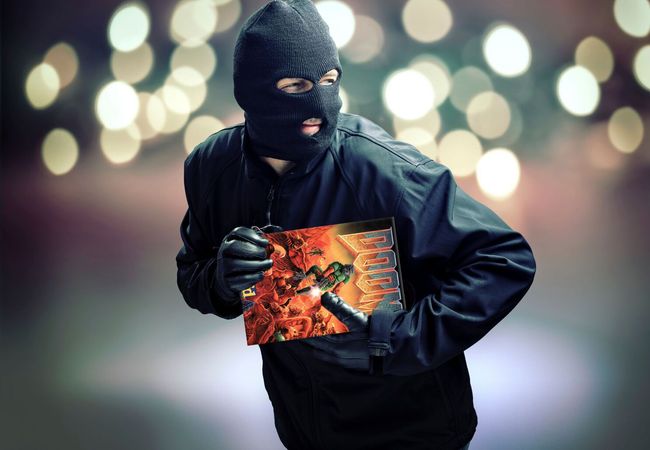
Piracy seems like it should be so simple, right? Stealing games is wrong. The end. But piracy is one of the most charged, complex, and divisive debates in gaming. Follow a piracy discussion long enough and it will spiral through issues as complicated as international economic policy, the concept of ‘ownership’ for digital property, game preservation, and the principle of the PC as an unrestricted technology platform.
Piracy in 2016, the age of digital distribution, indie gaming, and Steam’s dominance, is a different animal from the PC piracy of 1990 or 2000 or 2010. Unlicensed software distribution is just as illegal as it was when Don’t Copy That Floppy was a meaningful anti-piracy strategy, but our own understanding of the crime and its motivations haven’t kept pace with technology.
To get the pulse of modern piracy in PC gaming today, we spoke to pirates, developers, and publishers. We also spoke to the executive behind the newest digital rights management software (DRM) Denuvo, which has effectively paused global piracy for any game that uses it.
Crime rates
One of the reasons piracy is a difficult subject is that it’s nearly impossible to know how big a problem it really is. Like any black market, official numbers don’t exist. There’s no central entity to compile a comprehensive list of every illegal download. Unlike other black markets, though, there are also no physical goods or industrial production trails to provide a baseline for rough estimates.
Some developers and analysts have thrown surprising figures into that information vacuum. Most famously, in 2012, Ubisoft CEO Yves Guillemot made waves by claiming that 93% of PC players are pirates who don’t pay for games: “On PC it’s only around five to seven percent of the players who pay for [free-to-play], but normally on PC it’s only about five to seven percent who pay anyway, the rest is pirated.” According to Guillemot, high piracy rates forced Ubisoft to develop free-to-play games, which are easier to make and harder to pirate.
“At the time, our internal and external research showed that it reached [93-95%] for some popular PC titles,” Chris Early, VP of Digital Publishing at Ubisoft, told me when I asked him how Ubisoft felt about Guillemot’s piracy estimate four years later. Other developers have backed up Ubisoft’s numbers here: a post from the creators of Game Dev Tycoon back in 2013 also showed that, after one day on sale, 93.6% of players had pirated the game.
Though even in context Guillemot’s full quote doesn’t draw distinctions between popular games and PC gamers as a whole, Early insists that “we were not saying those were all lost sales or that the same situation applied for all PC games or in all countries.”
Running opposite to Ubisoft’s approach to DRM, which includes the Uplay launcher and various server-verification programs, Witcher developer CD Projekt RED has become a champion for what Marcin Iwiński, co-founder and joint CEO, calls the “carrot, not stick” approach.
“As long as there are any barriers, annoyances, performance slow downs, or any other kind of inconvenience for the end user, we will always choose the DRM-free approach,” Iwiński says. “We want gamers to buy our games because they want to and not because they don’t have the technical possibility to pirate them. For us, it’s always about doing more, giving additional value, and convincing gamers to buy our titles that way.”
[Source: PCgamer]
